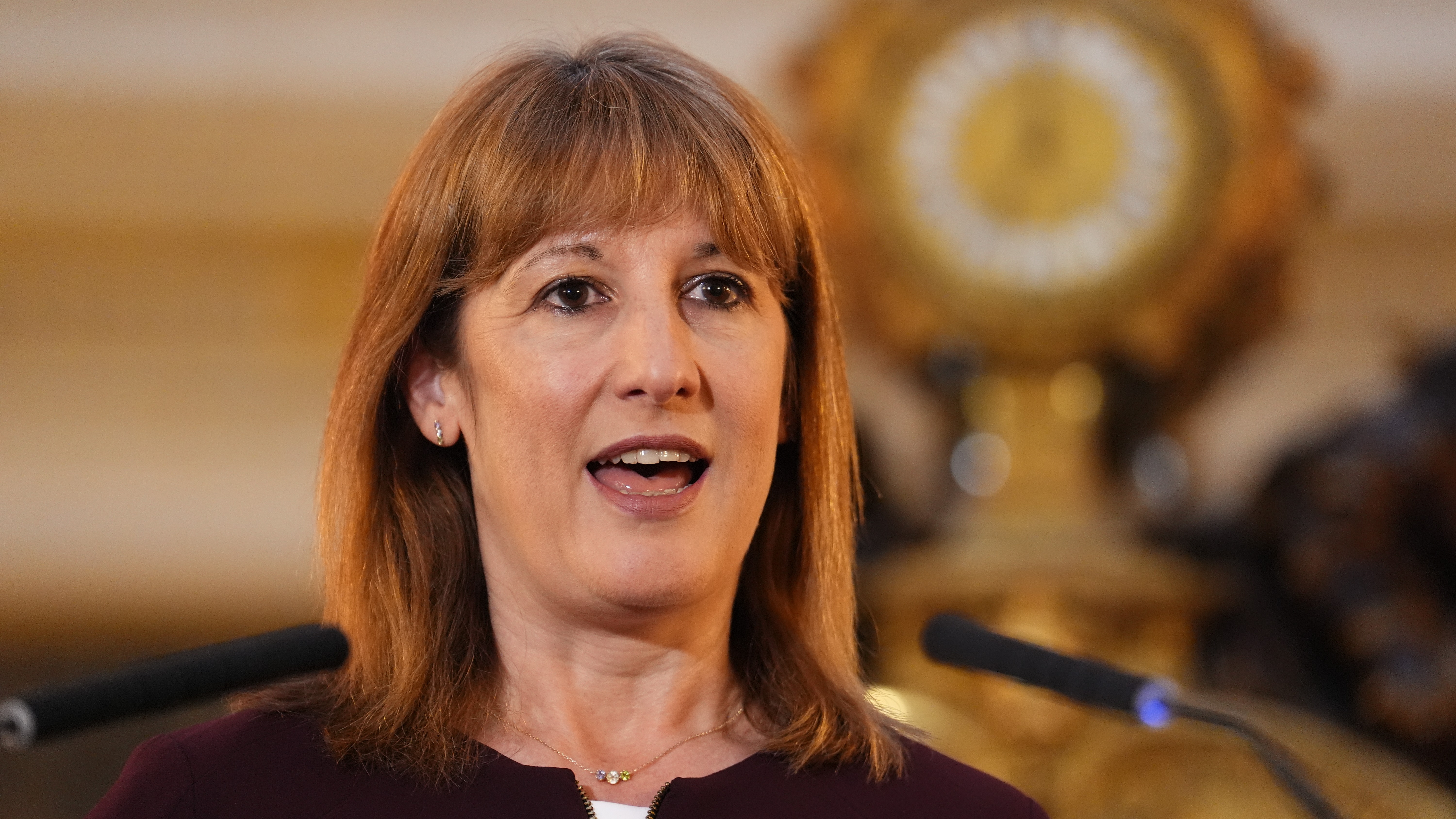Watch live as Rachel Reeves delivers her pre-budget speech
Rachel Reeves is set to promise a budget of “fairness and opportunity” as speculation mounts that she is preparing to raise income tax to help fill a gap in the public finances.
In a speech from Downing Street on Tuesday, the Chancellor is expected to say she will “make the choices necessary to deliver strong foundations for our economy” for “years to come”.
Ahead of her speech, No 10 repeatedly refused to reaffirm Labour’s manifesto pledges, fuelling speculation that its promise not to raise income tax could be dropped.
Reeves is expected to lay out three key priorities of cutting national debt, easing the cost of living and protecting the NHS, adding: “It will be a budget led by this government’s values, of fairness and opportunity and focused squarely on the priorities of the British people.
“You will all have heard a lot of speculation about the choices I will make. I understand that these are important choices that will shape our economy for years to come.
“But it is important that people understand the circumstances we are facing, the principles guiding my choices – and why I believe they will be the right choices for the country.”
The speech is intended to prepare the ground for a tough autumn statement on November 26, when the Chancellor is widely expected to raise taxes to balance the books in the face of weak growth and high borrowing costs.
Economists at the Institute for Fiscal Studies have estimated that Reeves will need to find £22 billion to restore the £10 billion of headroom she previously allowed herself under her own debt rules.
A sharper-than-expected fall in productivity could push that figure even higher, although easing inflation and slightly improved growth forecasts may offer some relief.

It comes as reports say that Reeves is considering a proposal from the Resolution Foundation, a think tank with close ties to the Treasury, to raise income tax by 2p in the pound while cutting national insurance by the same amount.
The foundation framed the measure as a “switch” plan that would help to iron out “unfairness” in the system by spreading the tax burden across a wider group, including pensioners and landlords.
The move would represent a clear breach of Labour’s election manifesto pledge not to raise income tax, VAT or national insurance for “working people,” a commitment the government has notably declined to say still stands in recent days.
Prime Minister Keir Starmer warned of “tough but fair” decisions to come in the statement this month as he addressed MPs at a meeting of the Parliamentary Labour Party in Westminster on Monday night.
And he indicated the budget would avoid deep cuts to public spending as a way to raise revenue, accusing the Tories and Reform of planning to “return us to austerity”.
“It’s becoming clearer that the long-term impact of Tory austerity, their botched Brexit deal and the pandemic on Britain’s productivity is worse than even we feared,” he warned the party.
“Faced with that, we will make the tough but fair decisions to renew our country and build it for the long term. A Labour government making Labour choices.
“The Tories and Reform would return us to austerity.”

He claimed Nigel Farage’s party was planning “massive spending cuts” rather than “taking the hard and serious decisions needed to renew this country.”
Asked on Monday whether the budget would leave that pledge intact, the Prime Minister’s official spokesman said the Chancellor would “strike the right balance” between funding public services and encouraging growth.
“I think what we’ve said is that the choices we’ll take at the budget will be led by our values and our determination to build a fairer economy that works for working people and rewards working people,” the spokesman said.
“We will maintain a tight grip on public spending to keep taxes, inflation and interest rates as low as possible.
“We will take the tough but fair choices on tax so everyone, including businesses and the wealthiest, contributes their share to fund our public services.”
Meanwhile, the Chancellor’s task of balancing the books has become more challenging after a backbench rebellion earlier this year, which resulted in the Government rowing back on planned welfare cuts of up to £5 billion.

Kemi Badenoch is expected to intensify her attacks over the U-turn in a speech on Tuesday, claiming “Britain has stopped working” and accusing Labour of having “given up” on lowering the benefits bill.
The Tory leader will also call on the Chancellor personally to “demand the Government withdraws the Employment Rights Bill altogether – before it becomes Labour’s Unemployment Act.”
“Britain has stopped working, because it has stopped making sense to work,” Mrs Badenoch is expected to say.
“Far from solving this, Labour seem intent on making it worse.”
She will claim the Government’s workers’ rights bill is “not fit for purpose,” adding: “It needs a fundamental rethink and overhaul. The only responsible action left for the Government is to shelve it in its entirety and start from scratch.
“So ahead of the budget later this month, Rachel Reeves should demand the Government withdraws the Employment Rights Bill altogether – before it becomes Labour’s Unemployment Act.”
Shadow chancellor Mel Stride said Starmer should sack the Chancellor if she hikes taxes, having said last year she would not be “coming back” for “more taxes” after delivering what she called a “once in a parliament” reset at the last budget.
“It’s taken Rachel Reeves more than a year to admit her first Budget was a failure. Now, with an emergency press conference, she is all but confirming what many feared – higher taxes are on the way,” he said.
“If Rachel Reeves breaks her promises yet again, Keir Starmer must take responsibility and sack her. The country needs a Chancellor with a plan and a backbone.”
Follow STV News on WhatsApp
Scan the QR code on your mobile device for all the latest news from around the country




























